In the wild rollercoaster ride that is Argentina, President Mauricio Macri can literally go from the flawless execution of a G20 Leaders Summit in Buenos Aires to seeing his father and brother summoned by a federal court to testify before the courts. This latest development comes in the context of a sprawling corruption investigation that could hit very close to home. Federal judge Claudio Bonadio held a tête-à-tête with Gianfranco, Mauricio’s brother, on Thursday while father Franco’s frail health allowed him to skip the trip to Comodoro Py courthouse. The Presidential family once again repeated their strategy to inoculate the president: blaming the father.
The so-called “notebooks” corruption scandal shocked the nation this year, as the Judiciary decided to bring charges against both Kirchnerite officials and the business community. On the back of photocopies of a series of notebooks containing handwritten notes by chauffeur Oscar Centeno, Judge Bonadio and Federal Prosecutor Carlos Stornelli brought charges against some of the country’s most powerful businessmen, including Techint CEO Paolo Rocca and ex-Iecsa owner Ángelo Calcaterra, who happens to be President Macri’s cousin. Bonadio has admitted he is on a personal mission to put former president Cristina Fernández de Kirchner behind bars, and has therefore relied on the controversial use of preventive prison-cum-plea bargains to secure testimony that supports his claim that the Public Works Ministry was used to put together a criminal racket. Cristina’s defence has pointed to this fact in order to discredit the judge, who’s record is far from pristine, along with what she considered an implicit defence of the Macri family.
The Macris were summoned after the repeated testimony of Claudio Uberti, former director of tollbooth regulator OCCOVI, which he directed until 2007. Uberti, it must be said, was also running a “parallel embassy” in Caracas, through which he negotiated favours between the Kirchners and Venezuela’s Hugo Chávez, including the financing of Cristina’s presidential campaign — Antonini Wilson, a Venezuelan national caught with US$800,000 in cash in Buenos Aires, had flown in with Uberti. According to Uberti, the companies that held concessions to operate the six “transportation corridors” paid US$150,000 per month in bribes which he took directly to then-planning minister Julio De Vido and, in some occasions, to Néstor Kirchner himself in the Casa Rosada.
Through Socma, the Macri family had an interest in two corridors, according to the investigation: the northern corridor which connects Buenos Aires City with the Panamericana highway, and the western corridor which leads out of the city to the west toward Luján. Franco Macri, the patriarch, learned to support whoever was in power as he built an empire that got him a place in the Forbes billionaires list in 1998, when his net worth was estimated at US$730 million. Franco’s crown jewel was Sevel, an automaker that held the licences to manufacture Fiat and Peugeot vehicles in Argentina. The president’s father made his way to Argentina in the 1950s from his native Italy and initially found work in construction. Franco’s is a typical immigrant success story, going from rags to riches to the point where he even conducted business with then-real-estate tycoon Donald Trump in New York in the 1980s. Along the way, Franco picked up interests in all sorts of businesses, the most lucrative of them generally close to the state.
As Mauricio grew up, he cut his business teeth alongside his father all the way until 1995 when he became President of Boca Juniors football club. But Mauricio always had a hand in Socma, where is known to have been active until becoming Mayor of Buenos Aires City in 2007. It isn’t immediately clear whether the president had anything to do with the transport corridors, nor even if his father and/or brother were aware of the supposed bribes that were being paid. According to Gianfranco’s defence team, their stake in Autopistas del Sol SA (which runs the northern corridor) shrank from 23.3 percent before 2001 to 10 percent the following year, then seven percent in 2004, and finally they liquidated the stake for US$19.7 million last year. They had negligible voting power and didn’t participate in board meetings, Gianfranco’s defence team claims.
Yet, interestingly enough, Luis Ramón Freixas Pinto, who was president of Autopistas del Sol SA, was hired to run Correo Argentino by the Macri family in 2017. His name was published in connection to the case by the La Nación newspaper on Tuesday, yet the digital version of the story was later redacted to leave him out. It’s worth going over the history for a second: Franco acquired the Correo during the privatisation spree of the 1990s under then-president Carlos Menem, taking a massive hit with the 2001 crash that left Socma owing the state US$300 million. President Macri came under fire for trying to condone the debt in 2017, forcing him back and leaving the issue unresolved.
Gianfranco, who claimed Sideco — another family holding company — had no relationship with Grupo Concesionario Oeste SA, told reporters on his way out of the courthouse that “never in my life did I pay bribes.” Asked whether his father had, he simply replied, “go ask him.”
At 88, Franco isn’t really in conditions to testify. According to several sources, the patriarch is only fully conscious a few hours a day, and generally doses off. Close to the president they claim he is “senile.” While some suspect this is all part of their legal strategy, Noticias magazine thsis week confirmed his health has deteriorated since February when he underwent surgery for a broken hip, along with having to deal with some heart problems.
When the Panama Papers scandal broke in 2016, Franco quickly took the heat, despite Mauricio appearing as director in an offshore corporation in Panama set up by law firm Mossack Fonseca.
Another former Macri family company was also caught up in the first stages of the “notebooks” scandal. Iecsa, sold by the Macri’s to cousin Calcaterra, appeared in the notebooks. He quickly showed up at the courthouse, admitted paying bribes claiming he had been asked for “campaign donations.” Calcaterra bought Iecsa in 2007 in long installments from his fellow family members, generating suspicions in the market that it was nothing more than a front for the family. Regardless, during the early part of the Kirchner years (from 2004 to 2007) it was involved in public works projects, during which Franco was actively managing the company. Reportedly Mauricio was actively involved as well.
Sources close to the president say there was discomfort at the summoning of his family members, even if some of the supposed ‘judicial operators’ were aware it was coming. The timing of certain things appears suspicious, and Bonadio’s background gives them reasons for paranoia. Regardless, even though they are both Macri, their strategy will be: “Mauricio is not Franco.” Ahead of what promises to be an aggressive presidential campaign, it looks like it won’t be just Cristina facing legal issues.













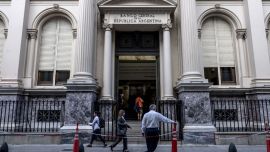


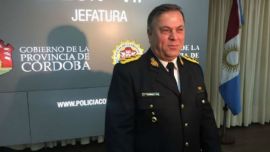
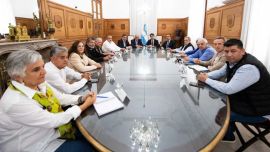
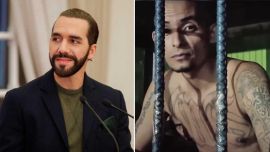
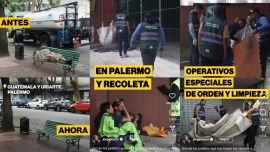
Comments